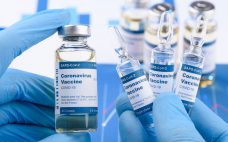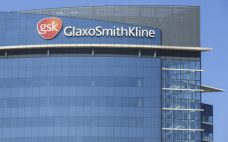Avid Bioservices will make IOV-3001, Iovance Therapeutics’ candidate interleukin-2 receptor agonist intended for the treatment of cancer. Avid will commence analytical activities, upstream and downstream process development, and pilot-scale non-GMP manufacturing for IOV-3001. The firm will also work with Aragen Biosciences, which is carrying out cell line development activities. The next stage will see Avid manufacture the drug at its Myford facility in Tustin, California. News of the contract comes just a month after Avid said it planned to increase…
Author Archives: Gareth Macdonald
VGXI buys site and starts designing gene therapy and DNA vaccine plant
VGXI has started designing a gene therapy and DNA vaccine manufacturing facility in Conroe, Texas that it says will be operational in early 2022. The contract development and manufacturing organization (CDMO) announced the acquisition of a site at the Deison Technology Park last week, also revealing that it is working with engineering consultancy BE&K on the facility design. The firm said it expects to start work on the plant in Q3 and predicted that construction will be completed late next…
Kriya opportunities: Biotech sets up RTP manufacturing facility
Kriya Therapeutics has set up a facility in North Carolina to support the production of its pipeline of AAV-based gene therapies. The site at Research Triangle Park (RTP) will house a process development lab, quality control and analytical development capability, pilot production suite. In addition, the facility will also have a current good manufacturing practice (cGMP) standard production infrastructure for gene therapies. CEO Shankar Ramaswamy told Bioprocess Insider: “By establishing our own internal manufacturing facility, we can help ensure that we have…
Calculated risk is key to rapid COVID-19 vaccine development says CEPI
Taking calculated risks will accelerate SARS-CoV-2 vaccine development according to CEPI, which says traditional techniques are too slow. Developing a vaccine usually takes between six to 11.5 years according to the Gates Foundation backed Coalition for Epidemic Preparedness Innovations (CEPI). In traditional development models target identification can take six months to two years, followed by preclinical testing and up to a decade of clinical development. Manufacturing scale up also takes years. But the COVID-19 pandemic calls for a different approach…
AbbVie ends vectorized antibody accord with Voyager
AbbVie has ended its Alzheimer’s and Parkinson’s disease collaborations with Voyager Therapeutics. Voyager announced the termination of its tau and alpha-synuclein “vectorized” antibody development accords this week, explaining it retains full rights to the candidates and the vectorization technology on which they are based. Voyage spokesman Paul Cox told us “AbbVie exercised its right to terminate for convenience in accordance with the terms of the agreements,” citing the firm’s 8 K Filing. The tau and alpha-synuclein research collaborations were formed…
Base editing firm Beam licenses Oxford Biomedica’s vector tech
Beam Therapeutics has licensed use of Oxford Biomedica’s Lentivector platform for the development of CAR-T therapies. Under the deal Beam can use the platform – a lentiviral based gene delivery system – for its cancer cell therapy programs. Oxford will also supply Beam with vectors for use in clinical trials for three years. Beam paid Oxford an undisclosed fee and has agreed to make further payments for vector supply. The UK firm will also receive royalties from the sale of…
Thermo and Lyell team to boost T-cell fitness for CAR-T
Thermo Fisher Scientific will develop manufacturing processes for cancer cell therapies in collaboration with Lyell Immunopharma. The deal – financial terms of which were not provided – will focus on improving the “fitness” of T cells from which cell therapies are produced according to the firms. A T-cells metabolic “fitness” describes the likelihood it can be turned into a cell therapy. Cell therapies need to be fit because of the high metabolic demands of tumor cells can negatively impact their…
COVID-19 revenue key to Thermo Fisher’s revenue growth in Q2
Thermo Fisher’s revenue increased 10% in the second quarter thanks to $1.3 billion generated by COVID-19 related work. Thermo posted revenue of $6.92 billion, up from $6.32 billion in the comparable quarter last year. Life sciences solutions contributed $2.60 billion – up from $1.71 billion – specialty diagnostics brought in $990 million – up from $940 million – and lab products and services generated $2.79 billion, up from $2.63 billion. In contrast, analytical instrument revenue was $1.05 billion, down from $1.32 billion…
GSK gains 10% stake in mRNA vaccine developer Curevac in manufacturing deal
GSK and Curevac have signed an mRNA vaccine and monoclonal antibody drug manufacturing and commercialization agreement. The agreement will combine Curevac’s mRNA technology and manufacturing capabilities with GSK’s vaccines knowhow, self-amplifying mRNA (SAM) vaccine technology platform as well as its monoclonal antibody development and production capacity. The collaboration will focus on five mRNA-based vaccines and mAbs targeting infectious diseases. GSK has agreed to pay €120 million upfront and make an equity investment of €150 million in Curevac. The programs do…
Orchard licenses GSK cell line tech for gene therapy programs
Orchard Therapeutics says GSK’s cell line tech will reduce reliance on plasmids and speed gene therapy development. The UK gene therapy firm licensed GSK’s lentiviral stable cell line technology (LV-SCLT) this week. The plan is to use the cell line to produce OTL-103 – a candidate for Wiskott Aldrich syndrome – and OTL-300 – a therapy for transfusion-dependent beta thalassemia. Orchard spokeswoman Molly Cameron told Bioprocess Insider “We aren’t disclosing financial details around the deal, however this agreement aligns with…









